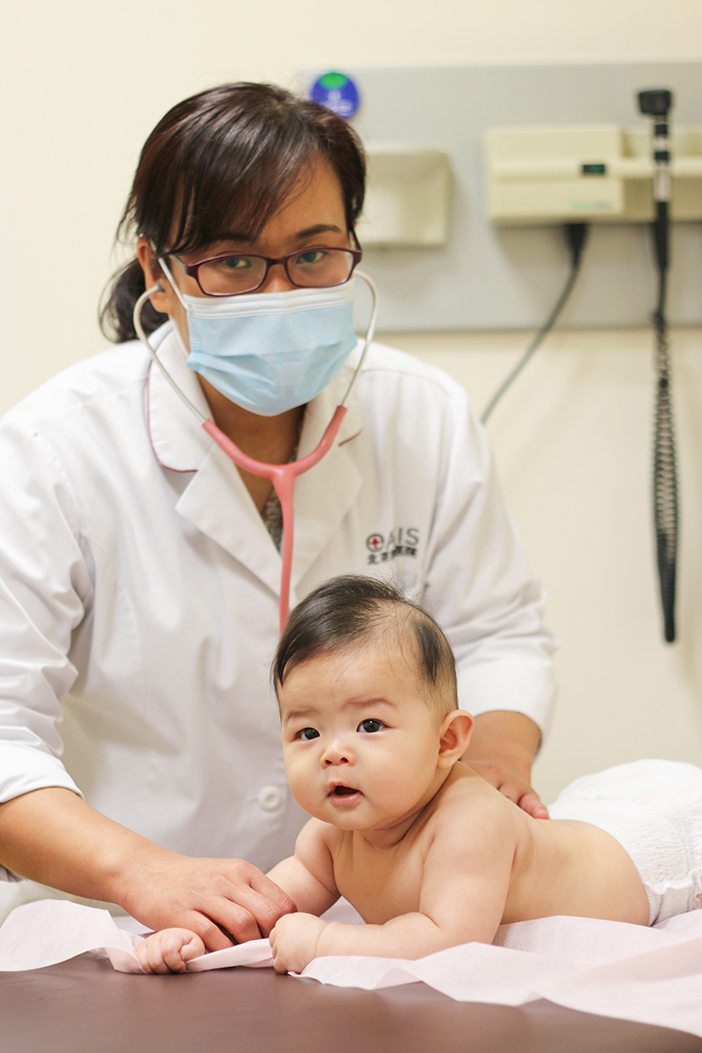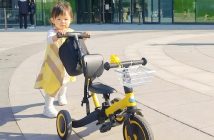 For first time parents, everything about your child is a new hurdle to overcome. From the moment you realize you’re pregnant, thoughts like managing the health and wellness of your baby, mental development, social development, education, finance, and more are all constantly at the back of your mind. Then you give birth and it’s go time. Forget the training classes you took where you practiced putting a diaper on a toy baby; it’s a whole different experience putting on a diaper while your baby has managed to somehow get poop in her hair. Your well thought out child-raising plan goes out the window and you enter crisis management mode – let’s just keep the baby healthy first and we’ll worry about the rest later.
For first time parents, everything about your child is a new hurdle to overcome. From the moment you realize you’re pregnant, thoughts like managing the health and wellness of your baby, mental development, social development, education, finance, and more are all constantly at the back of your mind. Then you give birth and it’s go time. Forget the training classes you took where you practiced putting a diaper on a toy baby; it’s a whole different experience putting on a diaper while your baby has managed to somehow get poop in her hair. Your well thought out child-raising plan goes out the window and you enter crisis management mode – let’s just keep the baby healthy first and we’ll worry about the rest later.
But global pandemic or not, today’s society has drilled the idea into our heads that children need to be social and that early education starts from birth. So, my fellow Beijing new moms and I began organizing playdates for our newborn children as soon as they were born. But is it actually necessary? Dr. Joy Oreto, a pediatrician at Oasis International Hospital with over 12 years of experience, shared with us her thoughts on child development and playtime.
Dr. Oreto explained how the first 1,000 days or the first two years of life is the most crucial time in a child’s life because it is the time when the brain is developing the fastest and simultaneously the time when the child is learning new skills.
It is also the most challenging time for a lot of parents. To make it easier, it is important to remember the developmental expectations for each period during a child’s lifespan.
Parents should first be aware of the different stages in a child’s life, starting in the newborn period which is from birth until one month old, infancy which is until 11 months old, toddlerhood which is from one-two years old, preschool from three-five years old, school age from five to nine years old and adolescence which is 10 – 18 years old.
Second, they should acknowledge and learn that there are different expectations for each of those stages. In the newborn period until three months old, the baby is learning about their body. At this stage, it is all about learning physiologic regulations like feeding and sleeping. So parents should learn more about their baby’s feeding and sleeping cues. They should also be encouraged to learn more about the concept of responsive feeding.
In infancy, the concept of attachment becomes extremely crucial. This is the time when the bond formed by the child with their parent plays a big role in creating connections in the brain to foster better development. This bond leads to the formation of trust and later on, the creation of a better relationship with the parent to help the child learn emotions and social skills.
For parents with toddlers, it is all about autonomy and exploration – learning about their bodies. Parents should encourage them to move and explore. They should try to have more playtime with them. Make sure that the child gets a balanced diet and adequate sleep.
In preschool, it is about learning about other people. This is the stage of empathic awareness, the stage when preschoolers realize that others have their own thoughts and ideas, and these may be different from hers.
But raising a baby in Beijing currently has its added challenges and while there are parents who are taking extra precautions and going on play dates and mommy & me classes, there are plenty who are choosing to keep their babies at home. According to Dr. Oreto, both parenting styles are fine. During the first two years of life, it is mainly the interaction with the parents or a primary caregiver that is most beneficial for the child’s development. And while playing with other children promotes social, emotional, and physical well-being, it’s best to wait until they’re toddlers. For children less than one year old, the best form of play should be with their parents and caregiver while during the toddler years the children can practice parallel play, playing side by side with other kids.
So are social interactions with other babies even necessary? Yes. Playing with other kids would promote social interaction and development. But for children under two years old, parents’ interaction is more important, and a good parent and child relationship would promote better cognitive outcome, rapidly learning language, and later on would show better problem solving ability and school readiness.
So while I enjoy meeting up with other new parents, sharing our experiences, and watching our kids somewhat interact with each other, it’s reassuring to know that it’s not a necessity at the moment. For the time being, playdates with newborns are more for the benefit of the parents.
Tips for Playdates During a Global Pandemic
Creativity is key. Indoor activities (obstacle courses) with siblings and parents, Zoom dates with other children where they play games, or drive by other children’s house just to wave and say hi from the car.
During this time, responsive caregiving is vital. The parents should be sensitive to their child’s emotions, concerns, and needs. Kids should be given appropriate support and reassurance to alleviate anxieties. Activities done outdoors could be tweaked to become an indoor activity.
KEEP READING: The Baby Momma’s Picnic Essentials
Images: Mina Yan
 This article appeared in the jingkids 2021 March issue
This article appeared in the jingkids 2021 March issue




